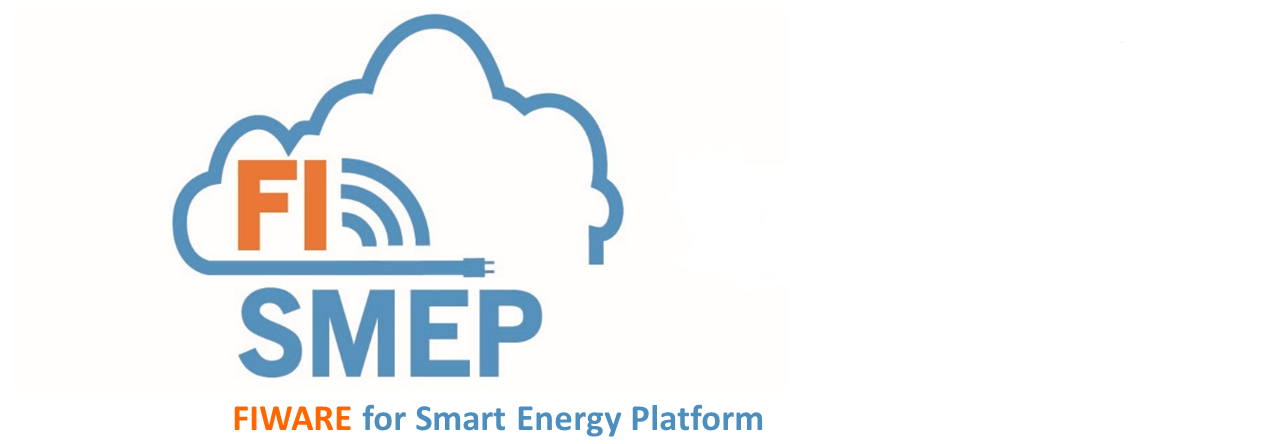PRESS RELEASE
Project Launch: FISMEP – FIWARE for Smart Energy Platform
December 1, 2017
Not only due to the arrival of the mainly automated “digital age“, but also given the integration of renewable and decentralized energy as well as the merging of electric and thermal domains, the energy sector has an increasing need for flexibility. The EU project “FISMEP“ (FIWARE for Smart Energy Platform) targets this need by developing a cloud-based, service-oriented open source software platform (also referred to as FIWARE technology) to facilitate an efficient, automated and sustainable energy supply for single buildings as well as municipalities.
The platform concept, which is known as “Smart Energy Platform“, has already been developed in the previous EU project “FINESCE“ (Future INtErnet Smart Utility Services). FISMEP draws on the results of FINESCE and will further advance the platform by designing and adding new services to increase the flexibility of energy systems. Under the coordination of RWTH Aachen University, a total of seven research and industrial partners from Germany, Sweden and Romania are jointly working on a smart energy solution that will provide new capabilities in the area of distribution grid management: In addition to a modern energy system, which is oriented towards the vision of a “smart city“, the open source principle is supposed to facilitate a connection with external actors such as producers, distributors or consumers. That way, innovative energy services and business ideas can quickly be integrated into the platform for deployment.
Research conducted in FISMEP follows an interdisciplinary approach that comprises the areas energy, information and communication technology (ICT) as well as social science. To show the platform‘s impact on the energy system and to exploit the combined knowledge of the three divergent research areas, three field tests will be carried out on locations in Germany, Sweden and Romania. Here, innovative use cases will be demonstrated and evaluated with a particular focus on energy efficiency, performance and user-centered adaptation.
The Field Test Sweden is led by Chalmers University of Technology, in cooperation with the Institute for Energy Efficient Building and Indoor Climate (EBC) of RWTH Aachen University, E.ON Sverige AB and the City of Malmö. E.ON has previously developed the smart grid platform “CESO“ (Customer Energy and System Optimization), while the ”ERO” (Energy Organizer) is under development by Chalmers. Both platforms will be used for research purposes on two test sites: the HSB Living Lab on the Chalmers campus and Hyllie, a smart city scenario specially constructed in an area of Malmö. On both test sites, a number of households will be connected to the CESO smart grid platform and ERO, followed by user-centered analyses on energy consumption behavior and user experience as well as comfort monitoring that will be carried out in this context. The results of this field test will be particularly important with regard to the service-oriented adaptation of the platform.
The Field Test Romania is led by the University Politehnica of Bucharest, in partnership with their industrial partner EnergoBit. In the field test, advanced monitoring of distribution grids will be developed in order to demonstrate the FISMEP platform’s ability to integrate information on energy distribution and voltage quality. This information is extracted from real-time streaming via phasor measurement units (PMUs), which are to be understood as a network of special devices that measure both complex amplitude and voltage at multiple locations synchronized in time (i.e. “synchrophasor”). The acquired results of this field test are pivotal for the implementation of an electric energy market that can operate at different voltage levels, for instance.
The Field Test Germany will be led by the Institute for Automation of Complex Power Systems (ACS) of RWTH Aachen University, in close collaboration with Flexible Electrical Networks FEN Research Campus. Here, the first work step is the automation of the MVDC research grid. This medium-voltage (MV) distribution grid, which is solely based on direct current (DC), will be developed within FEN Research Campus. The developed automation of the research grid will be virtualized in the FISMEP cloud platform and will subsequently be put into test mode on the RWTH Aachen campus for demonstration and evaluation.
Another important objective within FISMEP is the communication of all project activities and results to industry and research. One measure for dissemination is the project website which will continuously be updated throughout the duration of the project, making all important news and relevant information publicly accessible. Additionally, dissemination will be carried out by means of the ERA-Net Smart Grids Plus (ERA-Net SG+) Knowledge Community. The overall aim is to reach stakeholders at an international level and to simultaneously trigger a widespread exploitation of the results, particularly by SMEs that will benefit from the open source solutions.
FISMEP is a project of the 2nd call of the ERA-Net SG+ initiative. ERA-Net SG+ is a network of Program Owners and Program Managers of national and regional funding programs in the field of research, technical development and demonstration. The initiative is supported by funding from the European Union‘s Horizon 2020 research and innovation program. In Germany, the initiative is supported by the Federal Ministry for Economic Affairs and Energy (BMWi) in the framework of the 6th Energy Research Program. FISMEP started on October 1, 2017, spanning a total duration of three years.
Project partners:
- RWTH Aachen University – Institute for Automation of Complex Power Systems (ACS) & Institute for Energy Efficient Buildings and Indoor Climate (EBC), Germany
- Flexible Electrical Networks FEN Research Campus, Germany
- University Politehnica of Bucharest, Romania
- EnergoBit, Romania
- Chalmers University of Technology, Sweden
- EON Sverige AB, Sweden
- City of Malmö, Sweden

